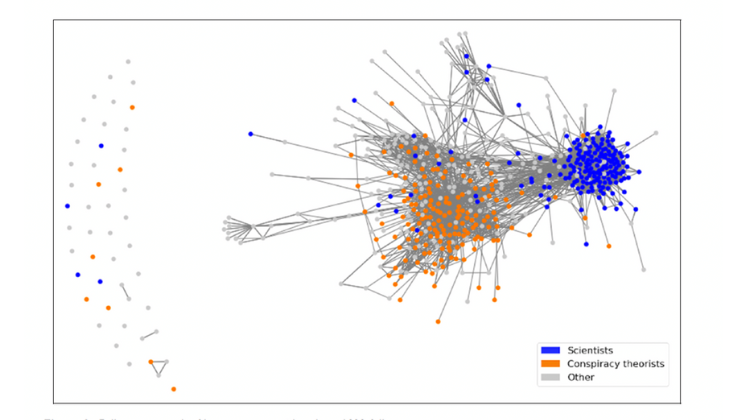Following the announcement of the Bill and Melinda Gates Foundation’s new open access policy, Richard Sever assesses whether this change signals the beginning of a wider preprint-led open access transition.
The Bill and Melinda Gates Foundation (the second largest charitable foundation in the world) recently announced a new open access (OA) policy. They will require articles resulting from work they fund to be posted as preprints and no longer cover fees for their publication in academic journals. This shift in focus from the peer-reviewed journal article to preprints aligns with a proposal called Plan U and marks a significant policy change for a major funder. It comes at a time of much discussion about the future of academic publishing, as journal peer review is coming under increased scrutiny and some are questioning whether it’s necessary at all.
The academic community has been arguing about OA for almost three decades. Few dispute that articles reporting research findings should ideally be freely accessible to anyone. How exactly to achieve this, in particular how OA should be paid for, has been hotly debated since Steven Harnad’s ‘subversive proposal’ in 1994. Numerous approaches have been proposed (too many to detail here), but suffice it to say each has its detractors. One thing most of these have in common is a focus on the version of the article that has been certified as ‘peer-reviewed’ by a journal. In the model favoured by commercial journal publishers and, until recently, many funders and OA advocates, publication costs are covered by article processing charges (APCs) levied on the authors. But these merely shift the access barrier from readers to authors. Meanwhile, academics are balking at the sums involved (more than $10K per article in some cases), and in a publish-or-perish climate the pay-to-publish business model has predatory publishers laughing all the way to the bank.
Few dispute that articles reporting research findings should ideally be freely accessible to anyone. How exactly to achieve this, in particular how OA should be paid for, has been hotly debated since Steven Harnad’s ‘subversive proposal’ in 1994.
A solution to the access problem has however been staring at us in the face for years: preprints, draft versions of articles that have yet to go through the expensive and time-consuming journal peer review process. Physicists, mathematicians and computational scientists have been using the arXiv preprint server, now hosted at Cornell University, to share preprints for more than 30 years. Biologists joined them en masse with the launch of bioRxiv by Cold Spring Harbor Laboratory in 2013, and since then a constellation of largely discipline-specific non-profit servers has emerged, including chemRxiv, medRxiv and socarXiv, along with servers such as ResearchSquare and SSRN owned by commercial publishers. Since preprint servers do not perform peer review, running costs are around two orders of magnitude lower than journals and can be covered centrally without requiring submission or subscription paywalls.
If funders want to make work they fund freely accessible, mandating preprints is a simple and easy way to achieve that goal: this is Plan U. Gates have recognised the logic of the approach and follow in the footsteps of organisations like the Chan Zuckerberg Initiative (CZI), the Michael J. Fox Foundation, and Aligning Science Across Parkinson’s (ASAP) that already require grantees to post preprints. By doing so, these funders ensure research is available to the community much earlier, which could speed up the scientific process significantly. Indeed many scientists have noted that rapid sharing of data was critical to the COVID-19 response.
If funders want to make work they fund freely accessible, mandating preprints is a simple and easy way to achieve that goal: this is Plan U.
Where then does this leave peer review? Critical examination of new findings is clearly essential to ensure progress is made on firm foundations. The question is whether the review process operated by journals achieves this effectively. Given that most papers change little during peer review, almost all end up being published somewhere and the current approach to journal peer review is only a relatively recent development anyway, many in the scientific community are questioning whether a judgment made at a single point in time by 2-3 anonymous referees could be improved on. By decoupling dissemination of articles from their subsequent evaluation, Plan U would create opportunities for alternative forms of review that do not conflate quality, interest and impact in an immutable unidimensional quality proxy: journal title. Meanwhile, some percentage of papers that will only be read by a small number of experts already well equipped to judge them may not warrant formal review at all.
It’s also worth emphasising that many of the challenges the publishing system faces assessing papers (identity verification, data provenance, image manipulation, paper mills, etc.) are not picked up during ‘peer’ review, but by other content-vetting processes. Many of these are not performed effectively by most journals or are outsourced to third parties. Calls by publishers for institutions to take greater responsibility for integrity checks reinforce the idea that these too could be decoupled from peer review, as does Gates own plan for a server that includes these. Funders should be part of this conversation and play a part in defining community norms. The new Gates policy states they will “advocate for peer review”. Discussion about when and how this should occur in a broader context, and recognition of the costs involved, should be part of that advocacy.
Whether a more decoupled ecosystem emerges will depend on other funders.
Whether a more decoupled ecosystem emerges will depend on other funders. Will key funders like Howard Hughes Medical Institute (HHMI) and Wellcome Trust follow Gates? Up until now they have made supportive noises about preprints but stopped short of mandates. Both are supporters of Plan S though, and frankly Plan S 2.0 looks a lot like Plan U. And what of the elephant in the room, National Institutes of Health (NIH)? The recent OSTP memo requires US-government-funded articles to be made free, but does not provide additional funds. If government agencies like NIH were to decide preprints qualify, as bioRxiv and arXiv have suggested, authors would have an easy path to making articles free that doesn’t require them to find an extra $5-10K behind the couch to cover APCs.
Interestingly, NIH is already running a pilot in which NIH-funded preprints are deposited in PubMed Central (PMC), the open access repository at the National Center for Biotechnology Information (NCBI). Many have assumed this is a first step towards PMC indexing all preprints, but it instead reflects PMC’s role as a repository of NIH-funded science. Given the tacit government endorsement implied by inclusion in PMC, it seems unlikely they will open the gates to simply any un-reviewed preprint, but might preprints from other funders, like Gates, be allowed in? We will have to wait and see. Either way, a precedent for inclusion based on source, rather than content, has been set, and we should think hard about the implications of that as we consider how to develop trust signals for information.
The content generated on this blog is for information purposes only. This Article gives the views and opinions of the authors and does not reflect the views and opinions of the Impact of Social Science blog (the blog), nor of the London School of Economics and Political Science. Please review our comments policy if you have any concerns on posting a comment below.
Image Credit: Shane Rounce via Unsplash.








This is great to hear and sounds promising. I’m curious about new approaches to handling reviews and revisions post publication.
However, I don’t understand the assertion “Since preprint servers do not perform peer review, running costs are around two orders of magnitude lower than journals”. This implies that peer review is expensive. If reviewers and often editors are unpaid, what about peer review accounts for this expense? I always assumed it was the business administration and status quo left over from physical publishing that accounted for most this expense.
In the social sciences, which this blog is largely concerned with, preprints have never taken off. Neither has the idea of ‘revisable’ documents at different stages of peer review, appearing OA on preprint servers. I think the ideas above affect mostly STEM and medical disciplines – Gates want ‘fast’ and stress urgency.
It is rare that a social science article is so urgent that it can’t wait for proper refereed publication. Of course some authors can’t wait, and there are preprint servers we can use if so: but they are not exactly sweeping away authors wanted permanent and refereed publication. The idea, though, is to effectively target [and volunteer at] community led journals and alternatives to the ‘big five’ publishers.
I think the social sciences can get a lot more from preprints and the stages of open peer review on preprint servers than they currently think. Many research ideas stop, stall, vanish or quietly retire for a number of reasons, and never see the light of day. While the initial reaction to that might be one where one would think that if the research was worth it, it would have been finished, that’s too much of a leap.
Think of the possibilities: Research that was put aside in favour of other research that had better funding? Research that was started, but another more shiny idea came along, research that stalled because of life events, research that vanished because the main collaborator went silent, research that was deemed too similar to something else that was just released, etc. Imagine if others were able to stumble across this “unpublished” research, the ideas in raw form, follow the thought process and either spark up a collaboration, or lead to different paths of research.
It’s likely too naive a concept for some. Utopian thinking when the real world is brutally laying out the paths we’re forced down. But what if we be the change we want to see?